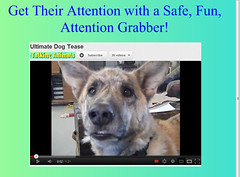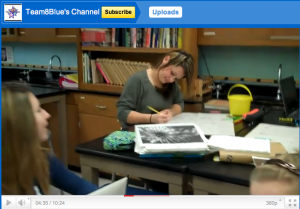Many people have been attending a new type of conference lately called an “unconference.” These conferences pool the ideas and expertise of the attendees to create sessions in which everyone is expected to share what they know. Today my school district held an “Un-service Day” which was not the typical inservice that we are all used to! District employees were asked to submit session ideas based on their own knowledge and skills. A list went out to the faculty and staff and we all were able to choose the sessions we wanted to attend. Session materials were posted on a wiki so that we could have access to all of the resources. http://qcsdapril242012.wikispaces.com/ We also used a hashtag on twitter, #qcsd424, and we posted comments throughout the day.

My colleague, Laura, and I presented a session on using SMART boards and clickers to engage adolescent students. We had a small group but I really enjoyed putting our ideas together. We had fun creating the SMART lesson that we used for the session and the group of teachers that attended had a great conversation about what is needed to help children learn.
During the day I also got to attend a workshop on Google Docs, Blackboard, and SMART Notebook. I have already begun implementing some of the things I learned in these sessions! For example, I have created a self evaluation rubric using Google Forms so that the students can check and revise their work prior to turning in their assignment. I posted the form on Edmodo and the students will be able to revise their rubric submission after they make revisions to their project.
One of the nicest things about the day was the positive atmosphere. Everyone felt the benefit of contributing their ideas and gaining new information from their peers. I would love to know if anyone else gets to do a similar type of professional development in their school districts. What was the best PD that your district has offered?

